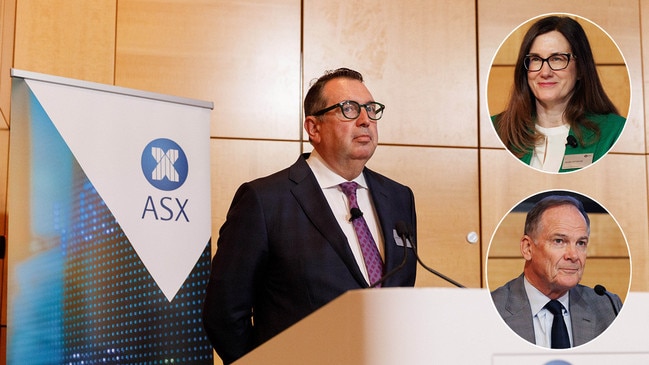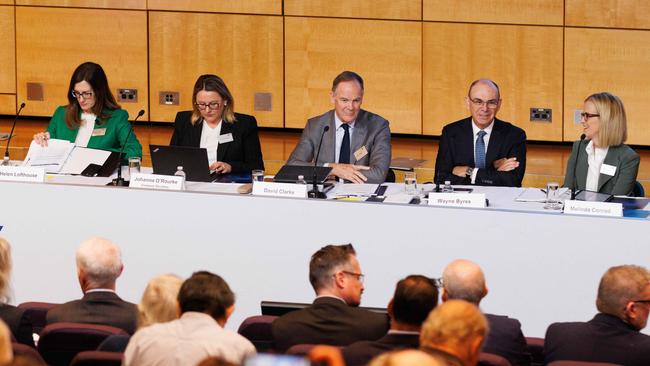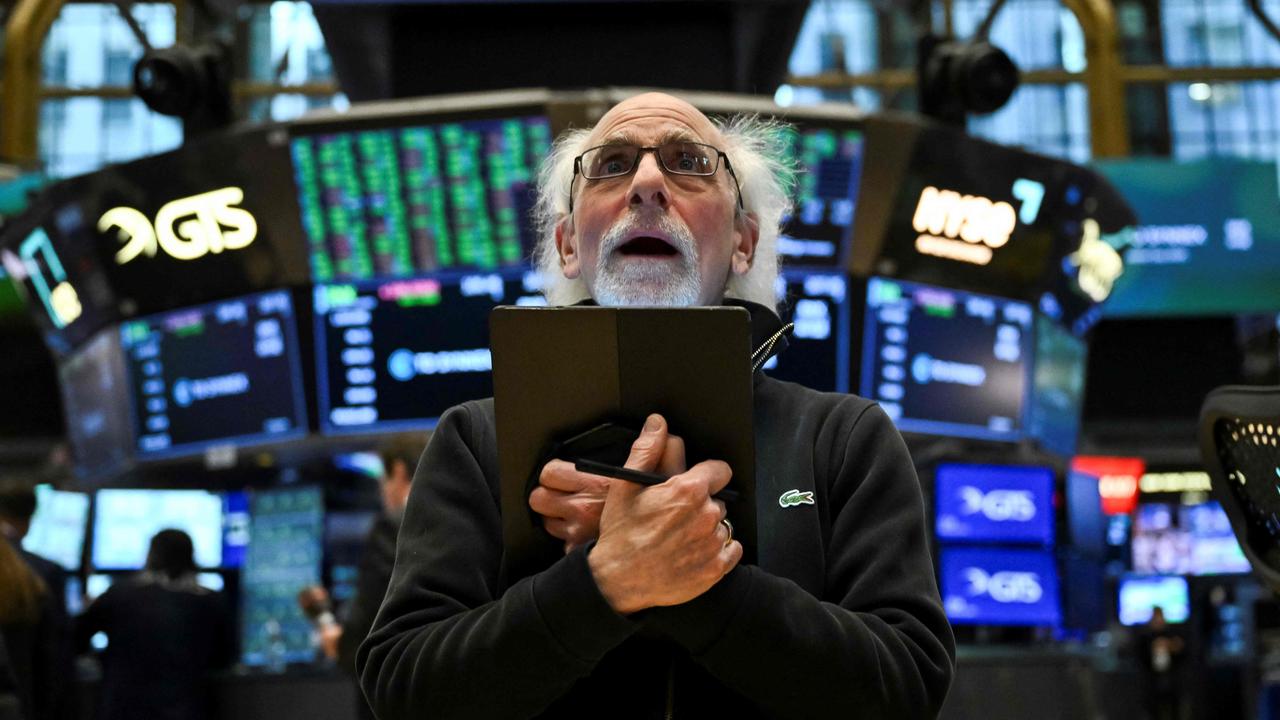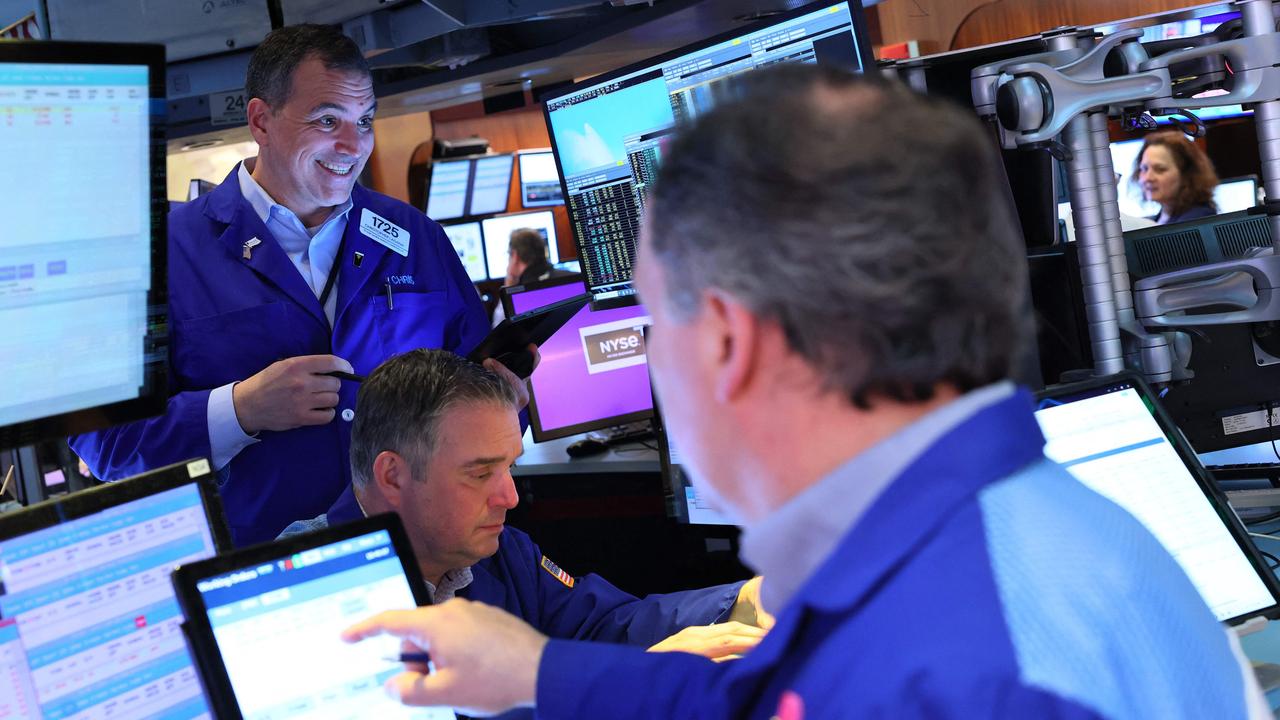ASX cops first strike over pay report amid anger over CHESS debacle
The ASX chair acknowledged shareholder anger over a disastrous technology project that sparked a first strike over executive pay at the market operator’s AGM in Sydney.

Shareholders hit the ASX with a “first strike” over executive pay in a move acknowledged by its chairman as a “clear” sign of dissatisfaction in the wake of damaging charges from the corporate regulator over a troubled technology project.
Weathering shareholder anger, outgoing ASX chairman Damian Roche struck a defiant tone over the market operator’s attempt to replace its CHESS clearing and settlement scheme for the second time.
Mr Roche, who stepped down as chair at the end of the annual general meeting on Monday, said he was confident in the future of the market operator despite a $250m writedown on an earlier attempt at replacing the CHESS system and warnings a further $300m may be needed to fund a new attempt.
Some 26.15 per cent of votes went against the remuneration report in the wake of moves to boost chief executive Helen Lofthouse’s bonuses by $1.7m.
Two consecutive votes of more than 25 per cent of shares against the pay report can trigger a spill of the board, forcing all directors to reapply for their seats.
Influential proxy group Institutional Shareholder Services recommended investors vote down the remuneration report, which was otherwise backed by rival proxy players.
The ASX’s two main superannuation fund backers, UniSuper and AusSuper, are understood to have voted in favour of the report.
Mr Roche said the shareholder anger as shown by the vote was a “signal for us to do more work”, noting the ASX’s board had “been on a journey to refresh our governance capability”.
Only two directors, Melinda Conrad and Peter Nash, remain on the ASX’s board from the period of its CHESS replacement foray.
Critics have said the ASX’s board lacked technical literacy during the major CHESS replacement program, with the market operator only recently establishing a technology subcommittee under former Westpac banker David Curran.
The ASX is currently before the courts after the Australian Securities & Investments Commission took aim at the market operator’s disclosures to investors about the CHESS replacement program.

ASIC alleges the ASX told shareholders the CHESS replacement scheme was on track when it knew the project was in dire straits.
Speaking at the AGM, Australian Shareholders Association representative Peter Gregory said the ASX should implement a “regulatory gateway” for all directors to benefit from their bonuses.
Mr Gregory said the ASA had voted down three of the past four remuneration reports of the ASX, but confirmed on Monday it would back the latest motion.
Incoming ASX chair David Clarke, who was picked to succeed Mr Roche in the wake of ASIC’s claims, said the “stakes are understandably high” as the market operator navigated the highwire act of a new CHESS replacement and fended off the corporate regulator.
But when asked to comment as new ASX chair, on his way out of the AGM, Mr Clarke declined.
At the meeting, Mr Clarke said he would put in place a governance structure “that matches the human capital resources of the company with the business opportunity we’re facing”.
The ASX recently selected Tata Consulting Services BaNCS as the platform to replace CHESS.
Mr Clarke told shareholders the board “must be very, very conscious we must perform for the owners of the company”.
However, in its submission to the Parliamentary Joint Committee in Corporations and Financial Services, ASIC revealed the ASX recently downgraded the status of its CHESS replacement to “amber”, warning of delays in product acceptance testing.
“Product acceptance testing of release one was completed behind schedule due to issues with the environment set-up, deployment and code defects in code drop one out of four planned code drops,” ASIC said.
Ms Lofthouse said the TCS BaNCS platform represented a “reliable, supportable and scalable platform that meets the needs of the Australian market now, and into the future”.
She said the ageing CHESS system, written on Cobol, worked well but had limits on its scalability.
“In evaluating the path we’re on at the moment we did a very wide-ranging and thoughtful review to figure out what was going to be the right approach,” she said.
Ms Lofthouse also said the ASX was on a “multi-year journey” to build up risk management practices and upgrade trading platforms.
She also reconfirmed the guidance offered to investors at a recent update, with expense growth likely to be 6-9 per cent in the year ahead.
Operating expense growth is expected to be 4-7 per cent, while capital management is expected to be $160m-$180m.
The ASX also fended off two board challengers on Monday, after former executives Phil Galvin and Bob Caisley pushed to gain seats amid anger over the CHESS debacle. Investors voted down Mr Galvin’s and Mr Caisley’s attempt.
Mr Galvin, a lifetime market figure who retired from the ASX in 2007, told investors he was concerned over a continued deterioration in regulatory health checks of the ASX’s systems.
ASX Limited shares fell 29c, or 0.4 per cent, to $67.17. The shares are down more than 17 per cent over five years, while the S&P/ASX 200 index is up more than 23 per cent over the period.






To join the conversation, please log in. Don't have an account? Register
Join the conversation, you are commenting as Logout